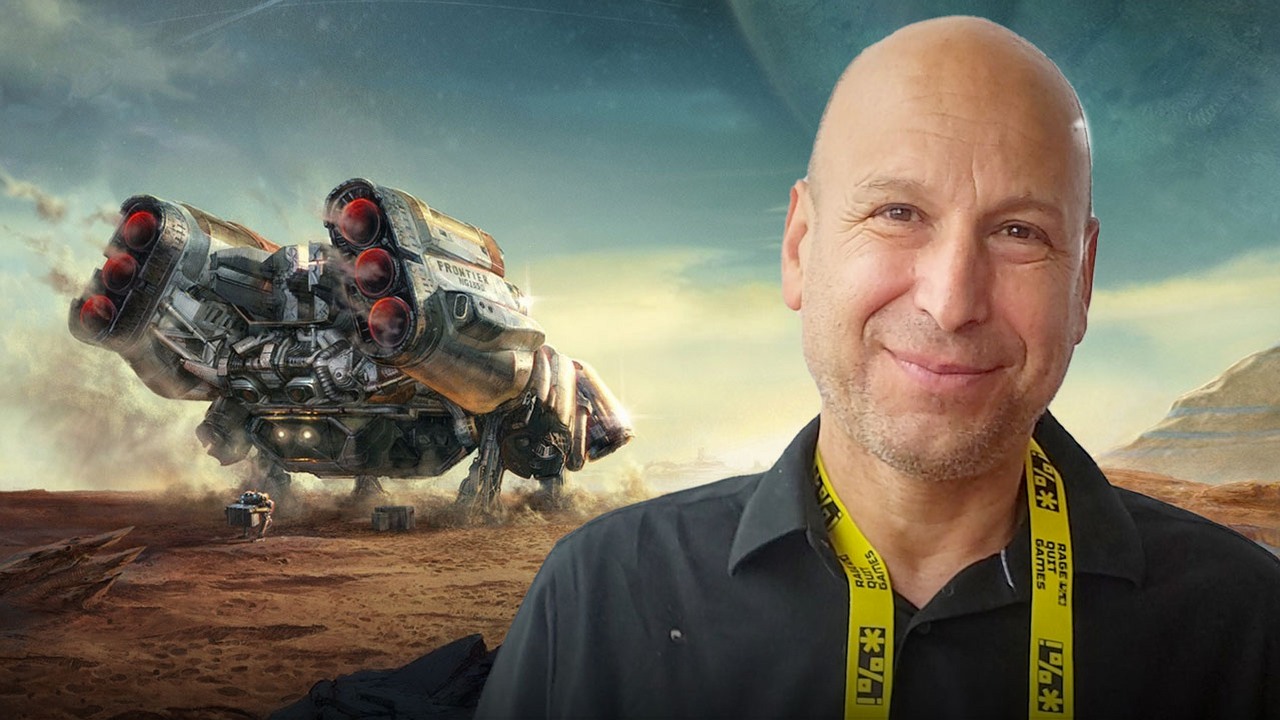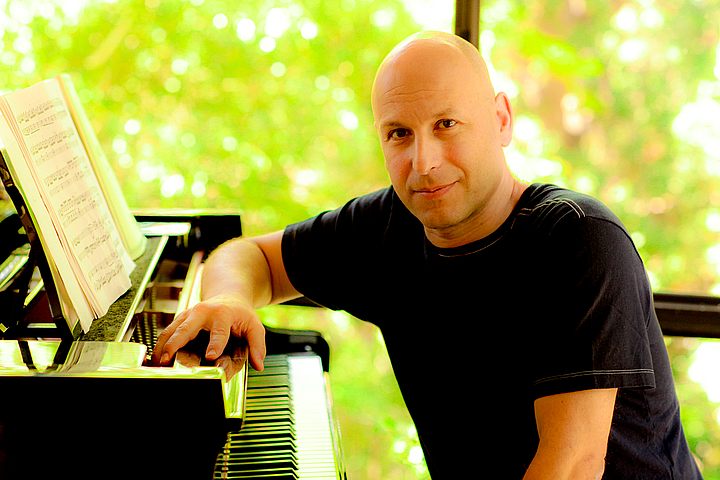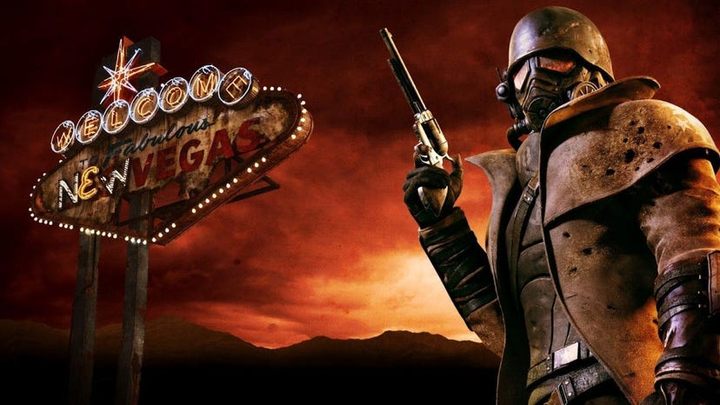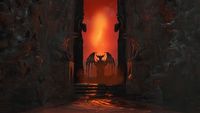How it Will Feel to Play Starfield - Interview With Inon Zur
The man whose music you grew up with, Inon Zur, the composer of music for Fallout New Vegas, Icewind Dale 2, Baldur's Gate 2 and Starfield, tells us about his work and Bethesda's upcoming blockbuster.
2

Inon Zur is an American composer of Jewish origin. He created soundtracks for many iconic games. His journey in the industry began in 1997 with the soundtrack for Star Trek: Klingon Academy, and over the next 25 years, he created music for games such as Fallout 3, Fallout: New Vegas, Baldur's Gate 2: Throne of Bhaal, Icewind Dale 2, and Dragon Age 2. He also contributed to the Prince of Persia and Syberia series. For the past 7 years, he has been working on Starfield.

Gamepressure: You have had an amazing career as a composer of iconic video games soundtracks. What’s your impression of games as a medium in comparison to theatre, TV or cinema?
Inon Zur: I think that many people ask this question because they are not really familiar with the way music is being composed for video games. So I could tell you – music is music, and the purpose of music is to create, what I call, the fourth dimension; the emotional dimension. It stays the same for cinema, TV and games. So up until now, it is exactly the same.
However there is a really big difference in the technique we apply to compose music. For example, when it comes to music and TV, you are locked to picture, you have to go for the picture, you need to be very, very close to what you see on the screen. No matter what’s going on, it’s all about what you see.
In games it doesn’t really work this way, because you have levels that can take 5 minutes to complete, or 1 hour to complete. So the music cannot be locked. What do you do then? You think in a different way – not about actually following the player or whatever’s going on. You think: what is the emotional aspect I want the player to feel? And this is my starting point. I think about the piece of music that you can play in and out regardless of what’s going on the screen.
So the key is to capture the so-called feel, right? Then let’s jump right away to some examples, that will help visualize your technique. What is, for example, the essence of Fallout games?
The emotion I wanted to create in Fallout was a combined emotion. On one hand, everything you knew, got destroyed. Many people died. It is catastrophic. So, the starting point is tragedy. On the other hand, there’s always a sense of hope for a new beginning. And this is what I wanted to instill inside the Fallout games. Not like the doomsday, oh no, “we’re all gonna die.” No. I wanted to tell the player: yes, horrible things took place, but now it is your time to fix, repair, do new stuff. The combination of these two emotions are the essence of Fallout music.

And are you able to say what players will be feeling in Starfield? What is it like to write music for a game that offers one of the biggest open worlds ever and faces the player with the whole galaxy?
Again, it is the combination of feelings. Imagine that you just hung out in space and no matter how many people were around you, you are still alone. Space is endless. And this is the first feeling. The feeling of “it’s much bigger than me. The situation is bigger than me. Space is bigger than me. The mission is bigger than me.” Everything is way larger than life. This is how it starts.
But then inside of this, you have the opportunity. You are scared, but excited. You are in shock, but you are also in awe. You are really subdued in one way, but in another way, you feel like you are full of power to create a new future, and more than this – to discover new worlds.
Fallout and Starfield seem to tap into different music realms, but are there any basic, core principles of your music style or composition techniques that are present in every project of yours?
Each video game is completely different. The feeling in Fallout is completely different from the feeling in Starfield and totally different from The Elder Scrolls. One thing, I would say, constitutes a similarity. It is how I create the music that talks to the emotions.
Every time I try into get to the head of the player, and I will tell them: “Now you have to feel this way.” All games are different but in most games, the story is about human beings. And human beings have emotions. We are often asked the “three W’s”: where, when and why? The why is the most important one. What motivates us, what is the theme, what is the story. This is the main subject.
So no matter what place and what time – it’s always touching human emotions.
Exactly. For example, Men of Valor, it’s about the Vietnam war. We had to describe the emotions there, but I used Vietnamese instruments, because it tells you where it happens. I used some music styles from the 60s and 70s, because this is when it took place. Those are the “where” and the “when”, but the “why” is what you need to feel.
You talk a lot about feelings and emotions, vibes and genres. But was any of these projects more personal and based on your emotions rather than others’?
Yes, and I will tell you which one. There is one game that is extremely personal for me and that is Syberia: The World Before. Because it talks about the Holocaust. As you know, I am Jewish. As you know, I am from Israel. And as you know, or if you don’t know, huge part of my family was murdered in the Holocaust. From the mother of my mother side, nobody survived, except her. All of her family went to Auschwitz, which is one hour away from where we are talking [we talked in Cracow, Poland]. From my father side, half of the family was murdered.
That’s ghastly. What was it like to work on such a personal project?
It was extremely personal. The music that I wrote was almost like a sad, devastating memorial for my family.
You’re basically dealing with family and historical trauma. In context of that, was it hard to work on games about World War II?
Everything that has to do with World War II invokes a lot of strong feelings, definitely present in my compositions. And I think that the players listening to my works there, especially in Syberia: The World Before, can read it very easily.
Is composing that kind of soundtrack to that kind of game more of a healing process, venting these emotions, or something else?
First and foremost it is the healing process. I think it’s a way for me to express my feelings through music – and that’s always a healing process.
Now onto something lighter – do you have video game soundtracks you haven't worked on that you regularly listen to, or are emotionally inspired by?
One of them was the score for Uncharted – I really love it and the whole way Greg Edmonson wrote the music. This is the one of the soundtracks that really talk to me.
Sometimes you work on video game series that other talented composers have worked on before. For example Baldur’s Gate and Fallout. In these kind of situations, to what extent do you resort to an original vision, and to what extent you’re interested in following up on what was already established?
It was challenging. Let me give you an example. Lots of games that Jeremy Soule did, I did the continuations for. He did Icewind Dale, I did Icewind Dale 2; he did Company of Heroes, I did Company of Heroes: Opposing Fronts. Or, I did The Elder Scrolls: Blades, he did The Elder Scrolls: Skyrim. To follow the footsteps of other composers, but then to create your own compositions, it is very challenging, because you do need to stay within the boundaries and really make a cohesive transition between the previous game to the current game. But you also have to make your own original mark on the game. How to balance it – that’s the big question.
My first Fallout was Fallout Tactics. Fallout 1 and 2 were made by Interplay and Mark Morgan. So, when Interplay reached out to me during the production of Tactics, they did it for purpose, because they wanted the score to be different from previous games. I did a very raw, percussive, ambient sound for this game, then the game was done and I thought I was done with Fallout.
And surprise, surprise!
Exactly! In 2004, Bethesda bought the licensing rights to develop Fallout games. You know, all the titles I did for Bethesda, I started 4 years before. Except of Starfield, which I started 7 years before, in 2016. I started working on Fallout 4 in 2011, it was out in 2015. But Fallout 3? Well, I got contacted urgently about 4 months before the game was completed! I had to do this score very, very fast – I got so excited; if you listen to the score of Fallout 3, you will see that it was basically my most important score of all the Fallouts. Because it created the new aspect of the soundscape for Fallout, and most importantly, it created a new theme. Fallout and Fallout 2 didn’t really have a main theme.
It was more ambient in the background in the first games. And Bethesda, you know, it likes themes.
Yes, so it was only a few months, more or less, yet it is a substantial score of mine. Because time doesn’t always matter, the things you do really matter.
So looking at your long journey as the composer – how does Inon Zur from the past differ from Inon Zur currently working on Starfield? Do you feel you have changed as an artist?
For sure. I feel that I am learning something new every day. I think that one thing that never changes is my attitude – I am always trying to create something genuine and specifically part of the game I am working on. What changed is my ability to open up more, to create more sounds, get more sophisticated in my compositions. I didn’t have the techniques of composing that I have today 10 years ago, and what I had 10 years ago, I hadn’t had 20 years ago.
And did something change in your perception of video games as a medium? What did you think of games before you became a video game score composer?
I didn’t know anything about games. My first game was Star Trek: Klingon Academy and it was 1997.
But right now you’re a proud composer.
Not only a composer, but a proud part of the video games industry.
So there’s nothing left apart from waiting for Starfield now...
After 7 years spent working on Starfield, believe me, I feel like you as we too are very excited for the game. Obviously I can't speak much about the game yet but I can tell you I'm very confident about the music we did. I am saying we, because it is a collaborative effort with Mark Lampert and Todd Howard. In fact today, in the night, I had a meeting with Todd Howard about Starfield. It's an exciting time!
About working with Todd Howard – how would you describe it?
I think he’s a genius. He’s always a few steps ahead of humanity, like an Elon Musk of gaming. Except he was the Elon Musk way before Elon Musk. And they actually know each other.
It’s always good to know that this industry has its own geniuses.
The interview with Inon Zur took place at Digital Dragons in Cracow, Poland.
- WoW's housing system will get some unexpected features any day now. Blizzard has detailed the development plan for its blockbuster after WoW: Midnight release
- Nintendo may unexpectedly beat Sony. State of Play is not to be the only game show awaiting players in February
- This is not the RPG you expected. Crimson Desert abandons the key elements of the genre, going for original solutions
2

Author: Karol Laska
His adventure with journalism began with a personal blog, the name of which is no longer worth quoting. Then he interpreted Iranian dramas and the Joker, writing for cinematography journal, which, sadly, no longer exists. His writing credentials include a degree in film studies, but his thesis was strictly devoted to video games. He has been writing for Gamepressure since March 2020, first writing a lot about movies, then in the newsroom, and eventually, he became a specialist in everything. He currently edits and writes articles and features. A long-time enthusiast of the most bizarre indie games and arthouse cinema. He idolizes surrealism and postmodernism. He appreciates the power of absurdity. Which is probably why he also tried soccer refereeing for 2 years (with so-so results). He tends to over-philosophize, so watch out.
Latest News
- Huge Marvel Adventures mod now with new superheroes, including Sentry
- Butcher's Summit, an impressive free diselpunk FPS, has been released
- Free FPS on Half Life engine gets big update
- On February 3, gaming history could change forever. Red Dead Redemption 2 one step away from a major achievement
- This is not the RPG you expected. Crimson Desert abandons the key elements of the genre, going for original solutions

